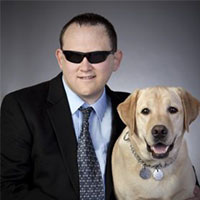Mill Creek White Collar Crime Lawyer, Indiana
Sponsored Law Firm
-
 x
x

Click For More Info:
-
Stracci Law Group, PC
11890 Broadway Crown Point, IN 46307» view mapCriminal Defense, OWI & Personal Injury Law Respected. Resourceful. Relentless.
Paul maintains a strong rapport with his clients as well as with other legal professionals in the area. He is a relationship builder, who has built strong relationships.
800-928-0490
Not enough matches for Mill Creek White Collar Crime lawyer.
Below are all Mill Creek Criminal lawyers.
James Henry Lockwood
✓ VERIFIEDAccident & Injury, Criminal, Divorce & Family Law, Employment, Estate
As a person who has experienced a disability as well as the trials and tribulations that go along with it, I know how crucial fair treatment before th... (more)
 Paul Stracci Crown Point, IN
Paul Stracci Crown Point, IN Practice AreasExpertise
Practice AreasExpertise

